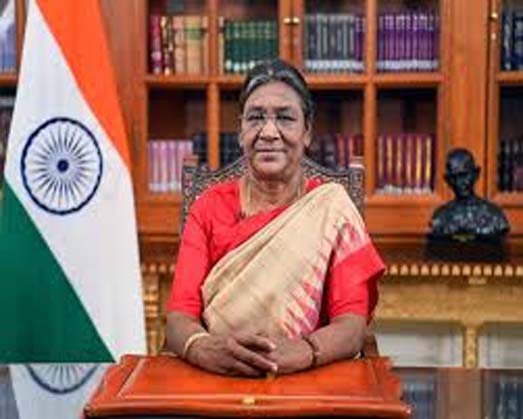Amidst the corridors of power in New Delhi, a decisive action unfolded. President Droupadi Murmu, holding the helm of the nation, declined the mercy plea of Pakistani terrorist Mohammed Arif, also known as Ashfaq, convicted in the notorious Red Fort attack case, a saga spanning nearly a quarter-century. This stern decision marks the second instance under her presidency, which commenced on July 25, 2022.
The apex court’s gavel had previously sealed Arif’s fate on November 3, 2022, dismissing his plea for review and affirming the death sentence bestowed upon him. Yet, legal pundits speculate that despite this, a condemned soul may still cling to the threads of hope, invoking Article 32 of the Constitution, citing undue delays.
Arif’s supplication for clemency, tendered on May 15, met its denouement on May 27, as confirmed by the President’s secretariat on May 29.
The august Supreme Court, in upholding the death knell, underscored the absence of any palliating circumstances in Arif’s favor. It underscored the grave implications of the Red Fort assault, viewing it as a direct affront to the nation’s unity, integrity, and sovereignty. The tragic events of December 22, 2000, witnessed assailants breaching the sanctum of the Red Fort, claiming the lives of three valiant soldiers from the 7 Rajputana Rifles unit.
Arif, a citizen of Pakistan and a known affiliate of the proscribed Lashkar-e-Taiba (LeT), fell into the clutches of Delhi Police mere days after the onslaught. “The appellant-accused Mohd. Arif alias Ashfaq was a Pakistani national and had intruded into Indian territory illegally,” echoed the apex court’s decree of 2022.
Condemned as the mastermind behind the Red Fort assault, Arif faced the judiciary’s wrath in October 2005, when the trial court pronounced the ultimate penalty. The echelons of justice, from the Delhi High Court to the apex court, resolutely upheld this verdict through successive appeals.
The labyrinthine plot to besiege the Red Fort unfurled within the confines of Srinagar, where Arif, along with three other LeT militants, had surreptitiously trespassed in 1999. His accomplices, Abu Shaad, Abu Bilal, and Abu Haider, met their demise in separate skirmishes within the monument’s precincts.
Despite a litany of legal maneuvers, including review and curative petitions, Arif’s plea for clemency met a resounding denial, spotlighting the gravity of his transgressions and the imminent peril they posed to national security. The Delhi High Court’s ratification in September 2007 solidified the trial court’s verdict. Arif, undeterred, sought solace in the highest echelons of justice, only to find his appeals rebuffed time and again.
In a final, futile bid for reprieve, Arif petitioned for a reconsideration of his review petitions, imploring a three-judge bench to preside over the proceedings in open court. The hallowed halls of justice, in their September 2014 pronouncement, decreed that cases entailing capital punishment from the high court warrant a tribunal of three judges for review.
In January 2016, the scales of justice tipped against Arif yet again, as the apex court maintained its stance, culminating in the definitive dismissal of his review petition on November 3, 2022.
This resolute stance by President Murmu echoes her unyielding resolve demonstrated in a prior instance last year, reaffirming a steadfast commitment to justice in the face of egregious offenses.




